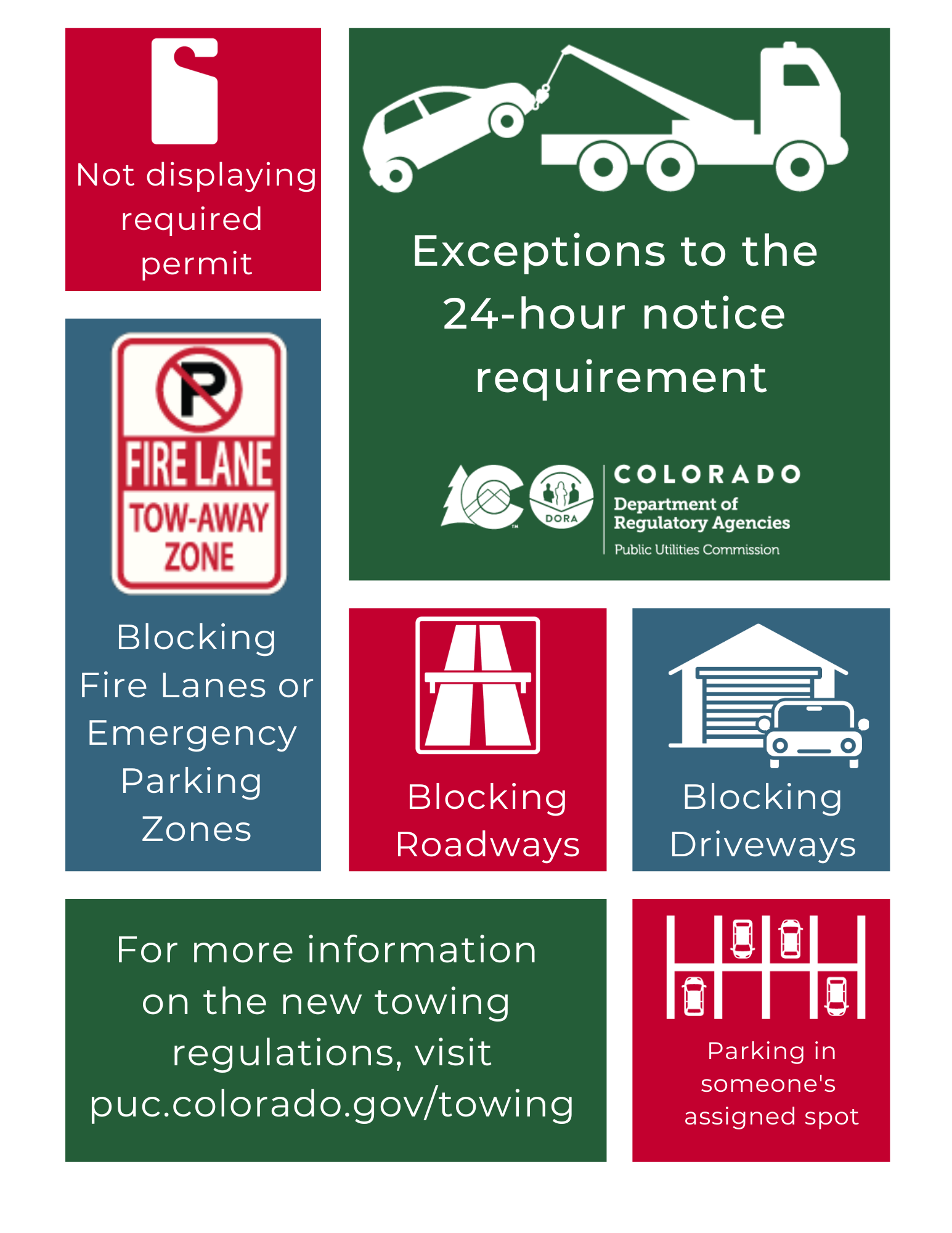In 2022, the legislature passed a bill that provides consumers with new rights related to “nonconsensual” vehicle towing, meaning tows where the vehicle owner or operator has not provided consent. The new laws do not prevent vehicles from being towed altogether, and individuals should still follow any applicable parking policies when they park on private property.
Many of the new protections only apply to tows that occur on residential private properties, like apartments, condominiums, and mobile home parks. In most cases, they do not apply to tows from commercial properties or tows ordered by law enforcement.
Generally, towing carriers are now required to provide 24 hours’ notice prior to towing a vehicle from residential private properties, but a vehicle may be towed immediately, and without notice, in situations like the following:
- The residential lot requires a parking permit but the vehicle does not have it or the permit is not visible or valid.
- The vehicle is parked in a fire lane or another person’s designated parking space.
- The vehicle blocks a driveway or a roadway.
- Among other new requirements, a towing carrier must release a vehicle if the owner of the vehicle pays the lesser of 15% of the total fees or $60, and agrees to pay the remaining balance at a later date. Towing carriers are also required to release a vehicle at no charge upon request, if it is still located on the private property where it was parked.
See the new towing legislation HB22-1314 available here.
Title 40, Article 10.1, C.R.S. governs the Commission's role in the regulation of Towing Carriers. Towing Carriers are subject to permit, rate, insurance, and bonding requirements.
Towing rules are at 4 CCR 723-6500. Towing rates, specifically, are Rule 6511.
